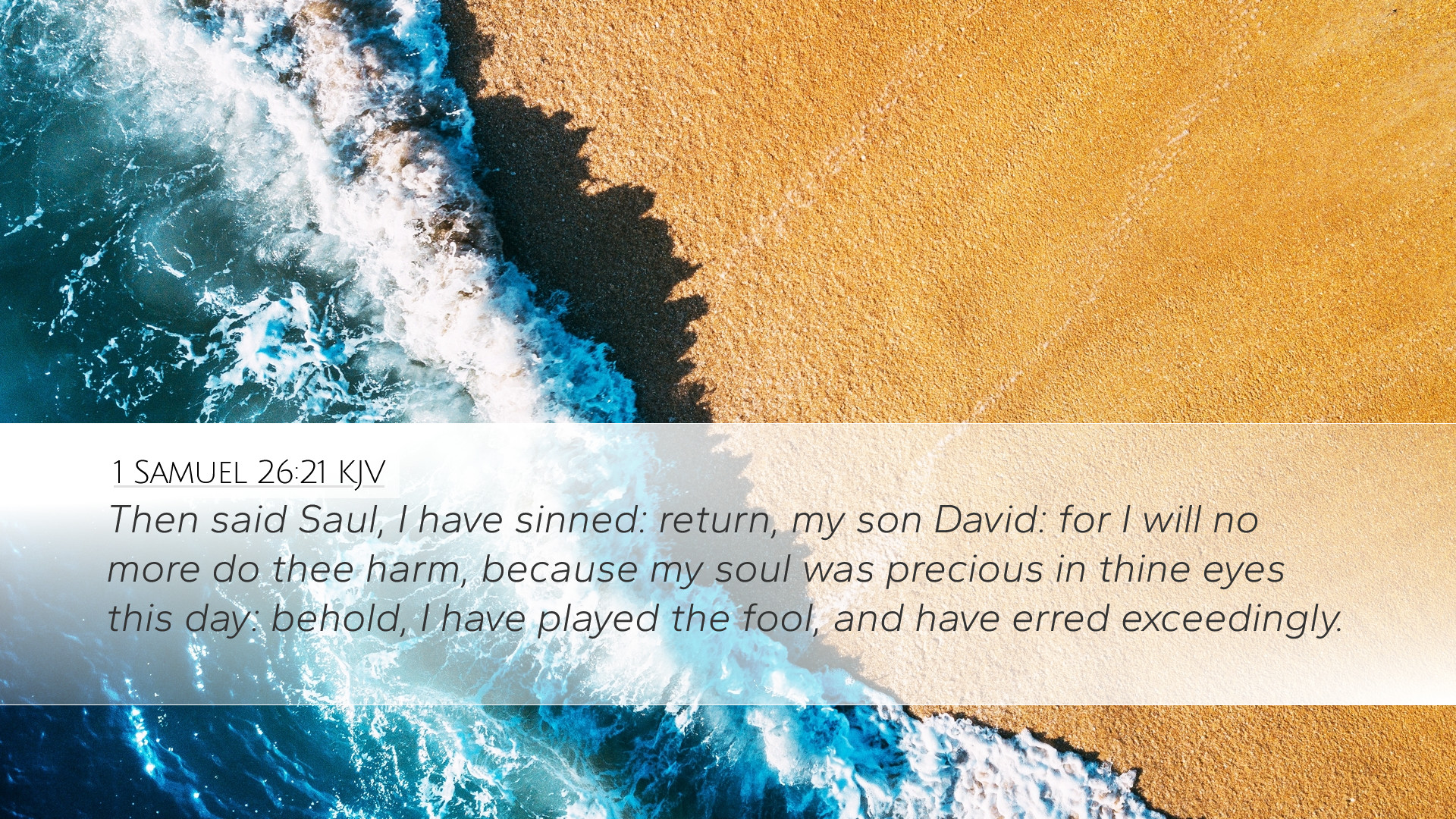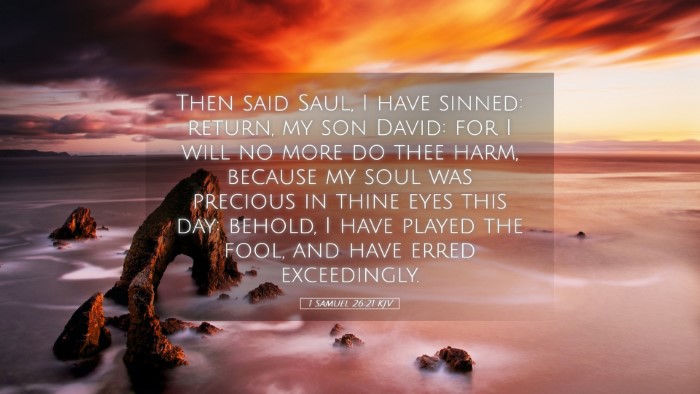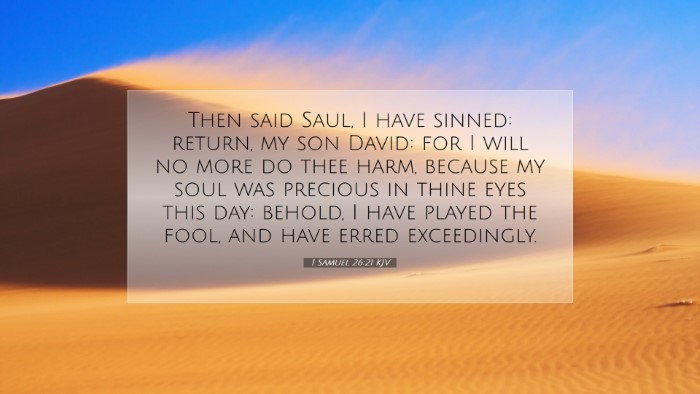Commentary on 1 Samuel 26:21
Verse: "Then said Saul, I have sinned: return, my son David: for I will no more do thee harm, because my soul was precious in thy eyes this day: behold, I have played the fool, and have erred exceedingly." (1 Samuel 26:21)
Introduction
The narrative of 1 Samuel 26 recounts a critical moment in the relationship between Saul and David. This verse represents a moment of self-reflection by Saul, acknowledging his wrongdoings toward David. Throughout the biblical text, instances of repentance and recognition of sin can offer profound insights into human weakness and divine mercy.
Contextual Analysis
This verse appears at a pivotal point in the tension-filled account of Saul’s pursuit of David. Having previously sought to kill David on multiple occasions out of jealousy and fear of losing his throne, Saul’s admission here signals both a moment of vulnerability and a longing for reconciliation.
Historical Perspective
Historical commentary sheds light on Saul's psychological state. Matthew Henry reflects on Saul's acknowledgment of his sin as a deeper hint of his complex character: a king who struggles between his fear of losing power and a glimpse of humility.
Literary Structure
The structure of this chapter is vital to understanding Saul’s response. The previous verses depict David’s mercy towards Saul, which serves to contrast with Saul’s violent intentions and illustrates the themes of grace and forgiveness. David’s decision to spare Saul indirectly brings Saul to a point of remorse.
Theological Insights
Recognition of Sin
Albert Barnes emphasizes that Saul's statement, "I have sinned," is crucial. This moment of admission is often the first step towards true repentance. It highlights the importance of recognizing one's faults before seeking reconciliation.
The Value of Human Life
When Saul mentions that David's soul was precious in his eyes, it touches on the deep theological principle of the inherent value of human life. This acknowledgment is vital in understanding God’s perspective on life, grace, and mercy.
Human Fallibility
Adam Clarke points out that "I have played the fool" indicates Saul’s awareness of his foolish actions. This admission is not just a moment of self-critique but serves as a stark reminder of human fallibility. This theme resonates strongly in pastoral teachings, reflecting the call for humility in all believers.
Practical Application
Lessons on Leadership
Leaders, much like Saul, may find themselves in positions where pride and fear cloud their judgment. This passage serves as a reminder that true leadership involves humility and the courage to admit when one is wrong.
Forgiveness and Restoration
This verse encourages practices of forgiveness, as seen in David’s response to Saul’s admission. The dynamics of their relationship showcase the potential for restoration even after deep-seated conflicts.
Encouragement for the Church
In church contexts, the call for repentance is constant. Saul's moment of acknowledgment serves as a model for congregants to understand that recognizing one’s flaws is essential for spiritual maturity.
Conclusion
1 Samuel 26:21 is more than just a historical account; it is a theological treatise on sin, humility, and the nature of reconciliation. The rich insights from public domain commentaries illuminate the text for pastors, students, theologians, and scholars alike. The verse encapsulates the essence of human experience — the struggle with sin and the possibility of grace. Through this commentary, we learn that, despite the weight of our errors, there is always hope for repentance and restitution.


